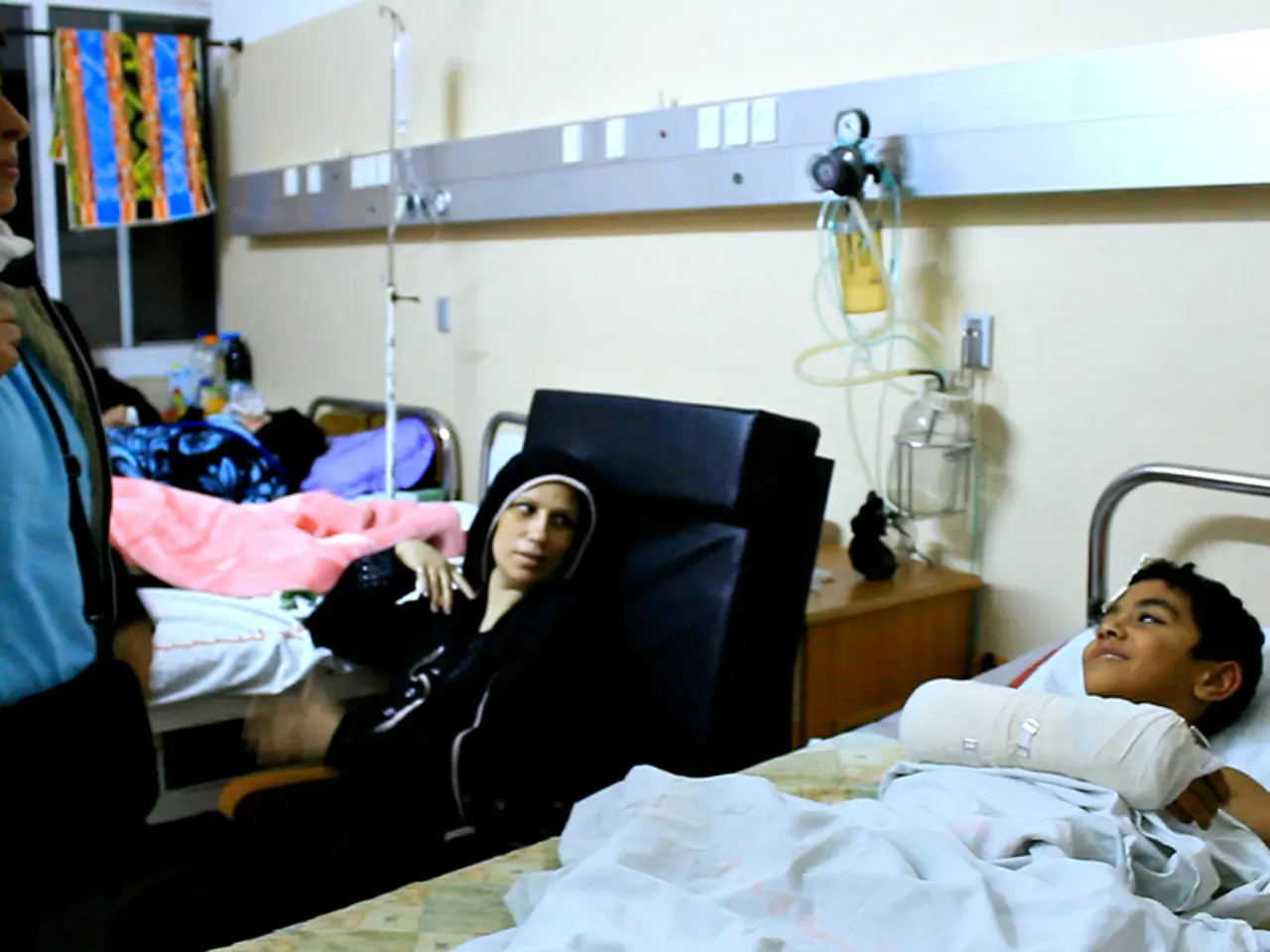Klebsiella oxytoca: Information on symptoms, treatment, and potential complications
Klebsiella oxytoca (KO) is a type of bacteria that can cause a range of infections, particularly in individuals with compromised immune systems. Commonly found in a person's intestinal tract, mouth, and nose, KO infections often occur in healthcare settings such as hospitals, nursing homes, and intensive care units (ICUs).
Although KO cannot spread through the air, it can be transmitted through physical contact or a contaminated environment. People with serious medical conditions, those who are hospitalized, and those with open wounds, use of a ventilator, or an intravenous (IV) catheter are more vulnerable to KO infections.
Immunocompromised patients with KO infections are at risk for severe systemic infections including bacteremia, pneumonia, urinary tract infections (UTIs), abscesses in various organs, osteomyelitis, and septic arthritis. These complications are frequently exacerbated by multidrug resistance, leading to challenges in management and higher morbidity and mortality.
Common entry points for KO infections in a hospital setting include wounds, catheters, and ventilators. To prevent the spread of germs and reduce the chances of infection, regular and thorough hand washing is essential.
Doctors usually prescribe antibiotics to treat KO infections, but some strains may resist common antibiotics, requiring specialized lab tests to find alternatives. It's crucial for individuals to complete the full course of antibiotics as instructed to reduce the risk of reinfection or incomplete elimination of the initial infection.
Symptoms of a KO infection may include fever, chills, shivers, body aches, difficulty catching a breath, shallow breathing, a mucus-filled cough, discharge from a wound, severe inflammation around a wound, pain when passing urine, pain in the lower abdomen, vomiting, and pain in the back.
If a person is hospitalized for a KO infection, they should request visitors wear gowns and gloves, ensure medical professionals use antibacterial gel, and wash their own hands frequently. If a person has lung infection or pneumonia, an X-ray or CT scan may be required to determine severity and treatment course.
In rare cases, a KO infection can be life-threatening if it leads to sepsis. Long-term complications of KO infections are uncommon, but untreated lung infections can lead to lung damage. Some UTIs with mild symptoms may respond to natural treatments and home remedies, such as taking acetaminophen, placing a hot water bottle on the abdomen, resting, drinking plenty of fluids, and avoiding sex if it feels uncomfortable.
Risk factors for developing a KO infection include prolonged use of antibiotics, use of certain medical devices such as a ventilator, having an IV catheter, having indwelling catheter tubes, having diabetes, and being alcohol dependent.
In summary, understanding the risks and complications associated with Klebsiella oxytoca infections is crucial for both patients and healthcare providers. By taking preventative measures and seeking prompt treatment, the likelihood of successful recovery can be significantly increased.
- In situations where a person develops a Klebsiella oxytoca infection, it is crucial to administer antibiotics to combat the bacteria, although some strains may display resistance, necessitating specialized lab tests for alternative treatments.
- Engaging in health-and-wellness practices, such as hand washing and seeking the use of antibacterial measures in healthcare settings like hospitals, can help reduce the risk of transmission and subsequent medical-conditions associated with Klebsiella oxytoca, such as UTIs, pneumonia, and bacteremia.




